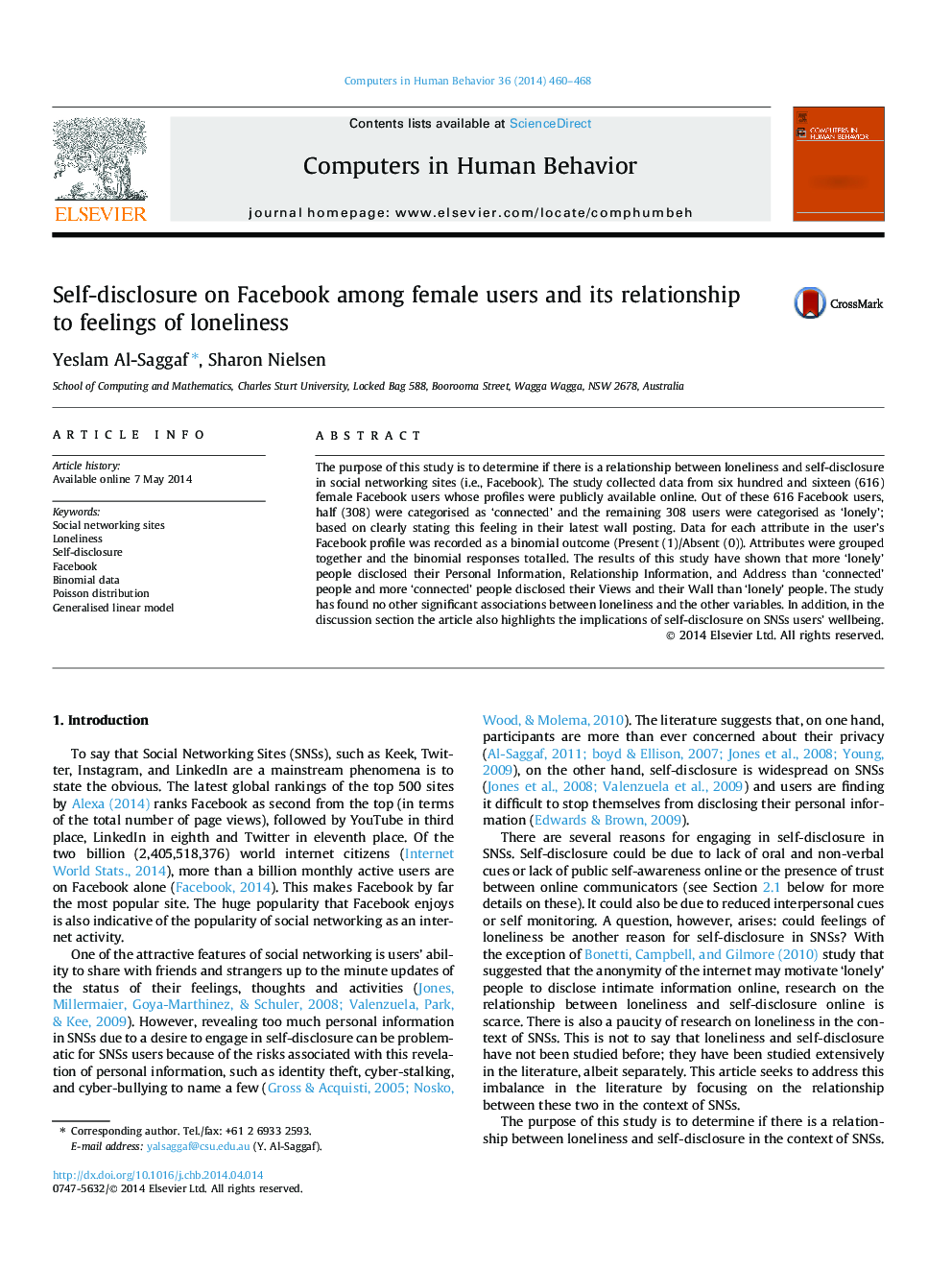| Article ID | Journal | Published Year | Pages | File Type |
|---|---|---|---|---|
| 350792 | Computers in Human Behavior | 2014 | 9 Pages |
•More lonely people disclosed private information such as Address than the connected.•Less lonely people did not disclose any private information compared to the connected.•Less lonely people disclosed their Views and their Wall than those connected people.•More lonely people did not disclose Views and their Wall compared to connected people.•No other significant associations between loneliness and other variables were found.
The purpose of this study is to determine if there is a relationship between loneliness and self-disclosure in social networking sites (i.e., Facebook). The study collected data from six hundred and sixteen (616) female Facebook users whose profiles were publicly available online. Out of these 616 Facebook users, half (308) were categorised as ‘connected’ and the remaining 308 users were categorised as ‘lonely’; based on clearly stating this feeling in their latest wall posting. Data for each attribute in the user’s Facebook profile was recorded as a binomial outcome (Present (1)/Absent (0)). Attributes were grouped together and the binomial responses totalled. The results of this study have shown that more ‘lonely’ people disclosed their Personal Information, Relationship Information, and Address than ‘connected’ people and more ‘connected’ people disclosed their Views and their Wall than ‘lonely’ people. The study has found no other significant associations between loneliness and the other variables. In addition, in the discussion section the article also highlights the implications of self-disclosure on SNSs users’ wellbeing.
